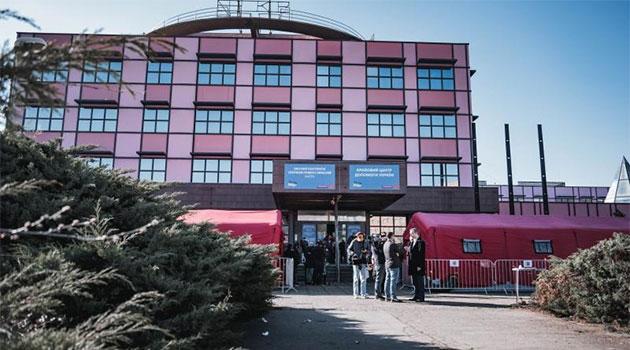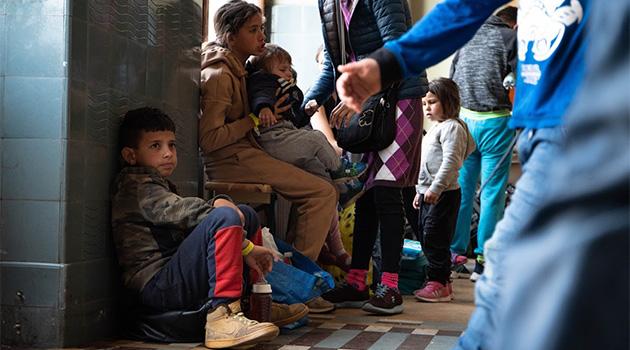Czech capital will stop receiving refugees from Ukraine in two weeks and will close its reception center in Prague's Vysočany quarter

On 15 June, Prague City Hall will close its center for refugees from Ukraine in the Vysočany quarter. The capital claims it is overloaded and that there is no system in place for relocating refugees to other regions that are less busy.
The center will close for an indefinite period of time until the Czech Government either introduces a refugee redistribution system or equalizes the burden between the regions. Mayor Zdeněk Hřib (Pirates) announced the decision after today’s meeting of the City Crisis Team.
The Czech News Agency is investigating the response of Czech Interior Minister Vít Rakušan (STAN – Mayors and Independents). “The capacities in Prague have long been exceeded. The only managerial instrument we have left is to close the KACPU (the Regional Assistance Center for Aid to Ukraine) and redirect refugees to other regions where capacities still exist,” said Hřib.
Prague claims to be struggling with a big influx of refugees, which, according to the mayor, is up to four times the size of the influx to other regions. The KACPU in Vysočany, which serves both the Central Bohemian Region and Prague proper, has so far handled more than 90 000 refugees.
Due to the large number of mostly Romani refugees from Ukraine who have been rendered homeless by the reception system and ended up living at the main railway station in Prague, refugee “tent cities” have been built in the neighborhoods of Malešice and Troja. The mayor has reproached the Government for not creating a refugee redistribution system.
According to Hřib, the Government has just communicated to the city the reasons why the creation of such a system is unworkable instead of designing specific steps to take. The mayor says Prague’s refugee reception center will close until the city finds the burden has shifted between the regions and the Government has set up motivational steps that are sufficient to persuade refugees to relocate.
“As soon as a proposal appears on the table, the Crisis Team will convene and discuss it,” the mayor said. In addition, at the main railway station in Prague, nonprofit organizations will no longer be providing humanitarian aid and are criticizing both the City of Prague and the Czech Government.
“We regret that the politicians from the City of Prague are not negotiating with us and are not coming up with meaningful proposals for resolving the situation at the capital’s main railway station. We reject any repression by the police and Interior Ministry,” RomPraha said to news server Romea.cz.
Prague suffers from the fact that, unlike cities elsewhere in the country, the lack of accommodation points cannot be resolved by refugees relocating into the immediate vicinity, as there is apparently also a lack of places in the Central Bohemian Region. This has been confirmed, according to the mayor, by analyses produced by the Czech Government and an analysis produced by the organization People in Need.
The city says it will inform refugees traveling by train that the center is closed and that they should head to regions other than Prague. It will now analyze the current accommodation points on its territory and whether their operators will be willing to allow refugees from Ukraine to remain in them once the Government-mandated three-month period during which the regions are obliged to take care of refugees expires.
The city now pays CZK 140 [EUR 5.65] per person per day from its own budget for this accommodation, in addition to the contribution paid by the state, and would stop doing so after the deadline expires. “We don’t want to take hasty steps and we want to think about it properly, so we will analyze it,” said Hřib.
